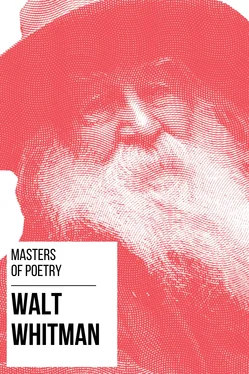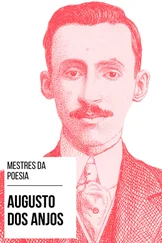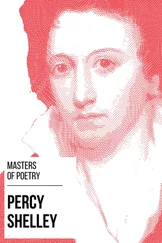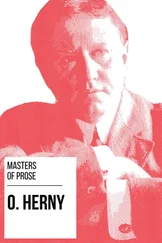"Prophetic spirit of materials shifting and flickering about me,"
and his cosmic splendor, depth, and power. It is not the denial of art, it is a new affirmation of life. It is one phase of his democracy. It is the logical conclusion of the vestless and coatless portrait of himself that appeared in the first edition of his poems. He would give us more of the man, a fuller measure of personal, concrete, human qualities, than any poet before him. He strips away the artificial wrappings and illusions usual in poetry, and relies entirely upon the native and intrinsic. He will have no curtains, he says,—not the finest,—between himself and his reader.
"Stop this day and night with me and you shall possess the origin of all poems,
You shall possess the good of the earth and sun (there are millions of suns left),
You shall no longer take things at second or third hand, nor look through the eyes of the dead,
nor feed on the spectres in books,
You shall not look through my eyes either, nor take things from me,
You shall listen to all sides and filter them from yourself."
This is a hint of his democracy as applied to literature,—more direct and immediate contact with the primary and universal, less of the vestments and trappings of art and more of the push and power of original character and of nature.
It seems to me it is always in order to protest against the narrow and dogmatic spirit that so often crops out in current criticism touching this matter of art. "The boundaries of art are jealously guarded," says a recent authority, as if art had boundaries like a state or province that had been accurately surveyed and fixed,—as if art was a fact and not a spirit.
Now I shall deny at the outset that there are any bounds of art, or that art is in any sense an "enclosure,"—a province fenced off and set apart from the rest,—any more than religion is an enclosure, though so many people would like to make it so. Art is commensurate with the human spirit. I should even deny that there are any principles of art in the sense that there are principles of mechanics or of mathematics. Art has but one principle, one aim,—to produce an impression, a powerful impression, no matter by what means, or if it be by reversing all the canons of taste and criticism. Name any principle, so called, and some day a genius shall be born who will produce his effects in defiance of it, or by appearing to reverse it. Such a man as Turner seemed, at first sight, to set at defiance all correct notions of art. The same with Wagner in music, the same with Whitman in poetry. The new man is impossible till he appears, and, when he appears, in proportion to his originality and power does it take the world a longer or shorter time to adjust its critical standards to him. But it is sure to do so at last. There is nothing final in art: its principles follow and do not lead the creator; they are deductions from his work, not its inspiration. We demand of the new man, of the overthrower of our idols, but one thing,—has he authentic inspiration and power? If he has not, his pretensions are soon exploded. If he has, we cannot put him down, any more than we can put down a law of nature, and we very soon find some principle of art that fits his case. Is there no room for the new man? But the new man makes room for himself, and if he be of the first order he largely makes the taste by which he is appreciated, and the rules of art by which he is to be judged.
The trouble with most of us is that we found our taste for poetry upon particular authors, instead of upon literature as a whole, or, better yet, upon life and reality. Hence we form standards instead of principles. Standards are limited, rigid, uncompromising, while principles are flexible, expansive, creative. If we are wedded to the Miltonic standard of poetry, the classic standards, we shall have great difficulties with Whitman; but if we have founded our taste upon natural principles—if we have learned to approach literature through reality, instead of reality through literature—we shall not be the victims of any one style or model; we shall be made free of all. The real test of art, of any art, as Burke long ago said, and as quoted by Mr. Howells in his trenchant little volume called "Criticism and Fiction," is to be sought outside of art, namely, in nature. "I can judge but poorly of anything while I measure it by no other standard than itself. The true standard of the arts is in every man's power; and an easy observation of the most common, sometimes of the meanest, things in nature will give the truest lights." It is thought that the preëminence of the Greek standards is settled when we say they are natural. Yes, but Nature is not Greek. She is Asiatic, German, English, as well.
In poetry, in art, a man must sustain a certain vital relation to his work, and that work must sustain a certain vital relation to the laws of mind and of life. That is all, and that leaves the doors very wide. We are not to ask, Is it like this or like that? but, Is it vital, is it real, is it a consistent, well-organized whole?
The poet must always interpret himself and nature after his own fashion. Is his fashion adequate? Is the interpretation vivid and real? Do his lines cut to the quick, and beget heat and joy in the soul? If we cannot make the poet's ideal our own by sharing his enthusiasm for it, the trouble is as likely to be in ourselves as in him. In any case he must be a law unto himself.
The creative artist differs from the mere writer or thinker in this: he sustains a direct personal relation to his subject through emotion, intuition, will. The indirect, impersonal relation which works by reflection, comparison, and analysis is that of the critic and philosopher. The man is an artist when he gives us a concrete and immediate impression of reality: from his hands we get the thing itself; from the critic and thinker we get ideas about the thing. The poet does not merely say the world is beautiful; he shows it as beautiful: he does not describe the flower; he places it before us. What are the enemies of art? Reflection, didacticism, description, the turgid, the obscure. A poet with a thesis to sustain is more or less barred from the freedom of pure art. It is by direct and unconsidered expression, says Scherer, that art communicates with reality. The things that make for art, then, are feeling, intuition, sentiment, soul, a fresh and vigorous sense of real things,—in fact, all that makes for life, health, and wholeness. Goethe is more truly an artist in the first part of Faust than in the second; Arnold has a more truly artistic mind than Lowell.
The principles of art are always the same in the respect I have indicated, just as the principles of life are always the same, or of health and longevity are always the same. No writer is an artist who is related to his subject simply by mental or logical grip alone: he must have a certain emotional affiliation and identity with it; he does not so much convey to us ideas and principles as pictures, parables, impressions,—a lively sense of real things. When we put Whitman outside the pale of art, we must show his shortcomings here; we must show that he is not fluid and generative,—that he paints instead of interprets, that he gives us reasons instead of impulses, a stone when we ask for bread. "I do not give a little charity," he says; "when I give, I give myself." This the artist always does, not his mind merely, but his soul, his personality. "Leaves of Grass" is as direct an emanation from a central personal force as any book in literature, and always carries its own test and its own proof. It never hardens into a system, it never ceases to be penetrated with will and emotion, it never declines from the order of deeds to the order of mere thoughts. All is movement, progress, evolution, picture, parable, impulse.
Читать дальше












